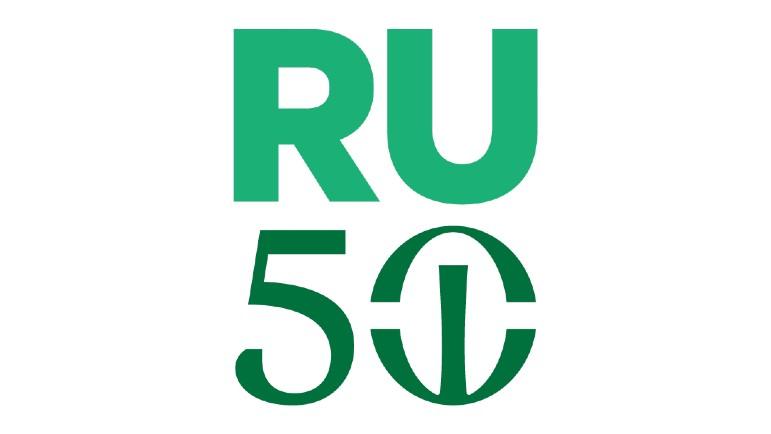RUSH University is celebrating its 50th anniversary during the 2022-23 academic year to honor five decades of education, research and clinical excellence.
Established in 1972, the University has deep roots in Chicago and a rich tradition of service. The University has continually evolved, raising the standard of education to better serve its community and improve health. University programs consistently rank among the best in the nation.
“The past contributions of so many talented faculty, students and staff deserve to be celebrated, because they have put us in position to continue to build on our legacy of innovation,” said Larry Goodman, MD, who served as president of RUSH University from 2002 to 2019 before moving back into the role on an interim basis this year.
Rich Tradition
The University has grown significantly, expanding from one college and fewer than 100 students to four colleges and an all-time high of 2,894 students in 2022. The University consists of four colleges:
- RUSH Medical College: RUSH Medical College is ranked in multiple areas including research, most diverse medical schools, most graduates practicing in medically underserved areas and more. You can learn more about RMC here.
- College of Nursing: RUSH University College of Nursing received top rankings in the 2023 edition of U.S. News & World Report’s “America’s Best Graduate Schools” survey. This includes two programs ranked at No. 1 and six other programs ranked in the top 5. You can learn about these rankings and more here.
- College of Health Sciences: CHS has received multiple top rankings for its programs by the U.S. News & World Report including the No. 5 ranked Health System’s Management program and No. 8 audiology program. You can learn more about CHS rankings here.
- Graduate College: The success of the Graduate College’s approach to the training of its students can be measured by alumni outcomes. More than 60 percent of Graduate College’s doctoral alumni remain in research or research-related careers.
The beginning of health care education at RUSH dates back to 1837, when RUSH Medical College was chartered by the Illinois state legislature just two days before the city of Chicago was incorporated. In 1885, the first predecessor of the College of Nursing, the St. Luke’s Hospital Training School of Nurses, opened.
The University is an essential part of RUSH University System for Health. With an exclusive focus on the health sciences, the University shares a campus with RUSH University Medical Center, allowing for the unique integration of patient care, research, education and community service.
Looking Ahead
The University is poised to build on its momentum. To develop the next generation of health care professionals and scientists, the University continues to foster and expand partnerships with organizations across the Chicago region, the nation and the world. Partnerships help to provide more learning, community service and research opportunities for university students, faculty and staff.
Research awards at the University have grown by 60% since 2019, and the total of $145 million in awards in fiscal year 2021 was a University record (a $54.5 million increase since 2019). Much of this growth is due to an increase in National Institutes of Health grant awards, which have risen by 40% since 2019, and efforts against COVID-19.
And Community service efforts at the University remain as integral to its culture as ever. The RUSH community provides volunteer services to more than 10,000 community members annually. University programs across the city help provide health care to people in underserved communities, educate the community about healthy living and educate students in elementary school and high school about the wide range career opportunities in health sciences. In 2020, The Association of American Medical Colleges awarded Rush Medical College the Spencer Foreman Award for Outstanding Community Engagement, citing the college’s work to protect Chicago’s homeless population from COVID-19.
In May 2021, RUSH announced the RUSH BMO Institute for Health Equity. Launched with a $10 million lead donation from BMO Financial Group and supported by numerous other gifts and grants, the RUSH BMO Institute advances RUSH’s work to eliminate Chicago’s life expectancy gap with solutions spanning education and workforce development, community clinical practice, community engagement and health equity research.
Opportunities in community service, research and population health help develop well-rounded health care professionals and scientists at the University. While many universities across the country have experienced enrollment declines, RUSH University’s enrollment has consistently increased.
“We look forward to an exciting new era of growth,” Goodman said. “The efforts of our dedicated faculty and staff are helping the next generation of health care leaders thrive.”

